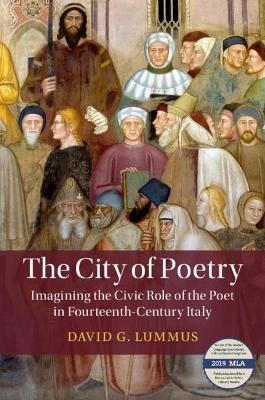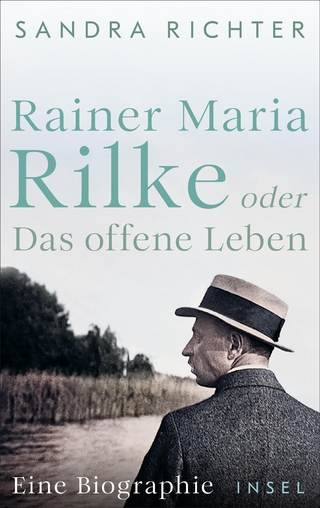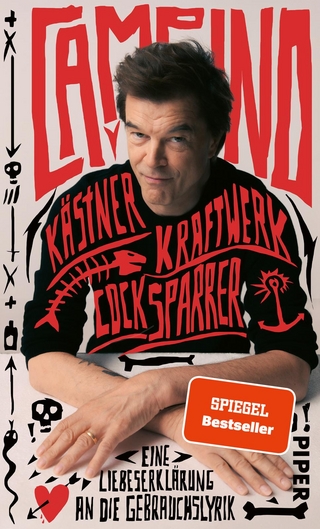
The City of Poetry
Imagining the Civic Role of the Poet in Fourteenth-Century Italy
Seiten
2020
Cambridge University Press (Verlag)
978-1-108-83945-7 (ISBN)
Cambridge University Press (Verlag)
978-1-108-83945-7 (ISBN)
This book is for students and scholars of medieval literature and for readers interested in the public intellectuals of the past. It provides new accounts of major authors like Dante, Petrarch, and Boccaccio, and invites readers to make comparisons with current debates about the public humanities.
What did it mean to be a poet in fourteenth-century Italy? What counted as poetry? In an effort to answer these questions, this book examines the careers of four medieval Italian poets (Albertino Mussato, Dante Alighieri, Francesco Petrarch, and Giovanni Boccaccio) who wrote in both Latin and the Italian vernacular. In readings of defenses of poetry, speeches and letters on public laurel-crowning ceremonies, and other theoretical and poetic texts, this book shows how these poets viewed their authorship of poetic works as a function of their engagement in a human community. Each poet represents a model of the poet as a public intellectual - a poet-theologian - who can intervene in public affairs thanks to his authority within texts. The City of Poetry provides a new historicized approach to understanding poetic culture in fourteenth-century Italy which reshapes long-standing Romantic views of poetry as a timeless and sublimely inspired form of discourse.
What did it mean to be a poet in fourteenth-century Italy? What counted as poetry? In an effort to answer these questions, this book examines the careers of four medieval Italian poets (Albertino Mussato, Dante Alighieri, Francesco Petrarch, and Giovanni Boccaccio) who wrote in both Latin and the Italian vernacular. In readings of defenses of poetry, speeches and letters on public laurel-crowning ceremonies, and other theoretical and poetic texts, this book shows how these poets viewed their authorship of poetic works as a function of their engagement in a human community. Each poet represents a model of the poet as a public intellectual - a poet-theologian - who can intervene in public affairs thanks to his authority within texts. The City of Poetry provides a new historicized approach to understanding poetic culture in fourteenth-century Italy which reshapes long-standing Romantic views of poetry as a timeless and sublimely inspired form of discourse.
David G. Lummus is the co-director of the Center for Italian Studies and Devers Family Program in Dante Studies and a visiting assistant professor of Italian at the University of Notre Dame. He has published on fourteenth-century Italian poetry and poetics, especially Giovanni Boccaccio, and the reception of classical culture in medieval Italy. He is the co-editor of A Boccaccian Renaissance (2019).
Introduction; 1. Albertino Mussato, Poet of the City; 2. Dante Alighieri, Poet without a City; 3. Francesco Petrarch, Poet beyond the City; 4. Giovanni Boccaccio, Poet for the City; Epilogue: Coluccio Salutati and the Future of the City of Poetry.
| Erscheinungsdatum | 15.01.2021 |
|---|---|
| Reihe/Serie | Cambridge Studies in Medieval Literature |
| Zusatzinfo | Worked examples or Exercises |
| Verlagsort | Cambridge |
| Sprache | englisch |
| Maße | 230 x 150 mm |
| Gewicht | 560 g |
| Themenwelt | Literatur ► Lyrik / Dramatik ► Lyrik / Gedichte |
| Geisteswissenschaften ► Sprach- / Literaturwissenschaft ► Anglistik / Amerikanistik | |
| Geisteswissenschaften ► Sprach- / Literaturwissenschaft ► Literaturwissenschaft | |
| ISBN-10 | 1-108-83945-2 / 1108839452 |
| ISBN-13 | 978-1-108-83945-7 / 9781108839457 |
| Zustand | Neuware |
| Informationen gemäß Produktsicherheitsverordnung (GPSR) | |
| Haben Sie eine Frage zum Produkt? |
Mehr entdecken
aus dem Bereich
aus dem Bereich
eine Biographie
Buch | Hardcover (2025)
Insel Verlag
CHF 39,90
Eine Liebeserklärung an die Gebrauchslyrik
Buch | Hardcover (2024)
Piper (Verlag)
CHF 24,90


